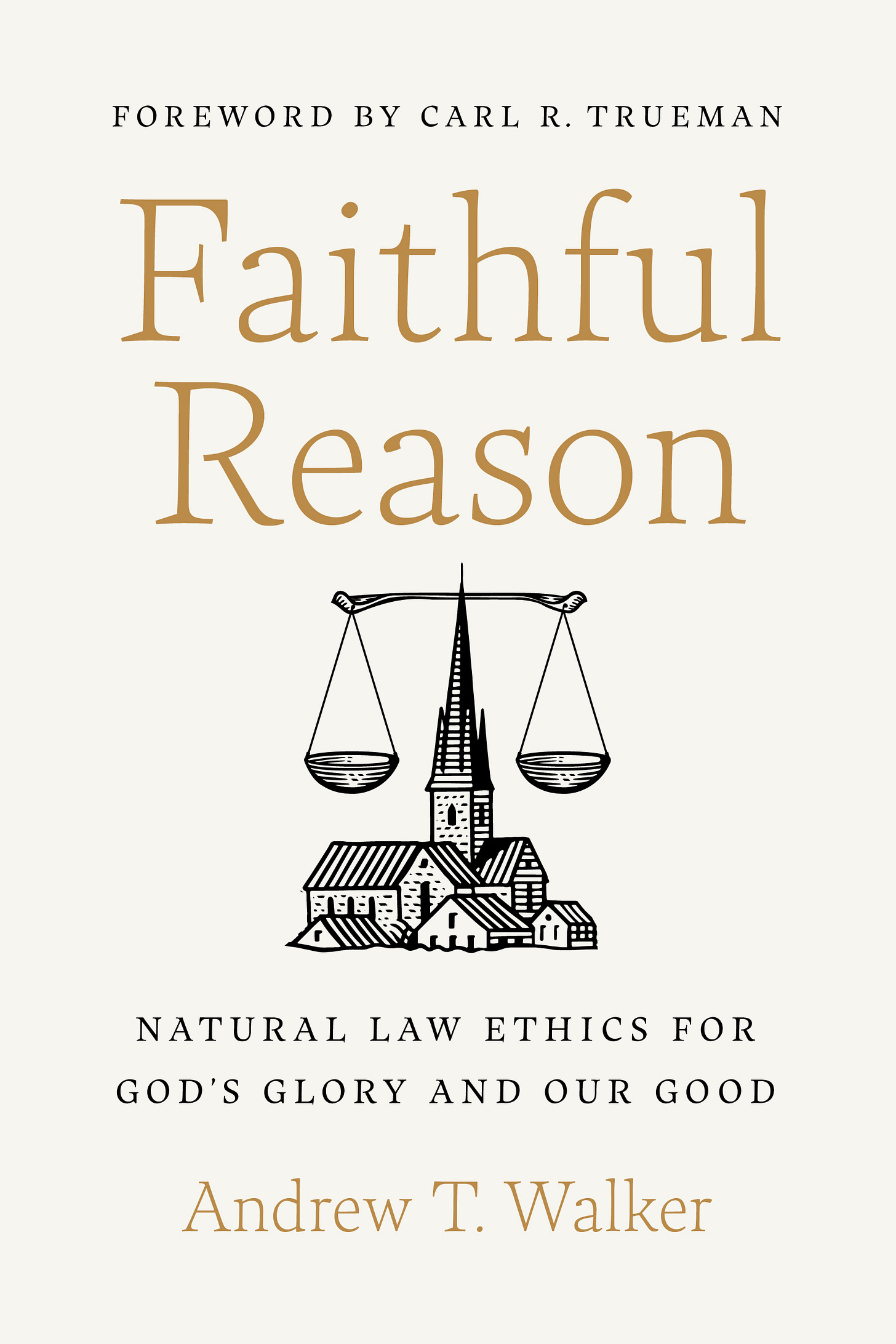“Natural theology” understood apart from Scripture provokes no small amount of confusion and derision in Protestant thought. A basic definition for natural theology is the philosophical study of God’s Being and action in creation. For some critics of natural law theory, natural theology is a handmaiden to natural law and is associated with overtures to Deism, where God is a mere “watchmaker” who creates but cannot be known in any relational sense. In this vein, natural theology is opposed to special revelation in that it sees the created order as the only possible medium for revelation at all. Natural theology can tend toward the dismissal of the miraculous since what can be known about God is only a product of philosophy and nature. Natural theology is thus the theology of the philosophers. If science accepts categories of divinity at all, it is in the vein of a natural theology that services agnosticism or theistic evolution.
Natural theology for others is a catalyst to variations of Pelagian theology that relies upon the inner strength of humanity to “work” their way to God apart from intervening and supernatural grace. This could also be referred to as “natural religion.” Natural theology divorced from Scripture downplays or rejects the effects of sin on humanity’s nature. That approach to natural theology is not within view [here]. [On the “natural religion” view], natural theology is an immanentized form of theology that locates the “divine” within the experience of the subjective self. It forms the theological superstructure that can metastasize into theological liberalism where the spiritual becomes coequal with human longing for the sublime. If natural theology is used in either of these ways, disavowal is necessary. But going about defining natural theology is similar to the saga of defining natural law: terminology and specificity matter. Much Protestant antipathy toward natural theology and natural law are the result of imprecise definition and caricature.
But there are right and wrong uses of natural theology. Dispensing with a biblical approach to natural theology because of possible abuse is unwarranted. What matters is discovering whether Scripture speaks in its own categories of natural theology.
Natural theology as referenced [here] excludes any possibility of natural theology being salvific in any way. Natural theology as [argued for here] is deduced from the scriptural teaching that the order of creation reveals truths about God the Creator apart from special revelation—among them that God exists and is responsible for organizing the splendor of an orderly universe. Special revelation, as I will argue, posits a form of natural theology that provides the seedbed for natural law. Scripture teaches of a natural theology revealed by means of natural revelation. Here, the focus is not on the salvific capability of natural theology but the intelligibility of nature as bearing witness to God’s handiwork. As David Haines rightly notes, conflating natural theology as an all-sufficient natural religion with the belief in reason’s exhaustive knowledge of God leads to an unnecessary rejection of creation as its own type of authority under God’s general revelation. In other words, we should not throw the baby out with the bathwater.
Frequently referenced verses such as Genesis 1; Psalm 19; Acts 14:15–17; 17:26–27; Rom 1:19–21, 28–32; and Rom 2:14–15 come to mind as examples where Scripture speaks of how creation and the experience of human nature itself testifies to God’s existence and moral order. David appeals to creation as giving witness to God’s existence and glory. For Paul, appeals to both creation order and human cognitive ability witness to God’s design, but also to humanity’s condemnation for having rejected this design. Jesus points to God’s care for the animals and flowers of creation to reflect the benevolent providence of God the Father (Matt 6:26–34). The Reformed theologian Peter Martyr Vermigli argues similarly about Christ’s relationship to creation order: “Christ sends us to the birds of the air, to the lilies and grass of the field, that we might acknowledge the singular providence of God in preserving those things that he created.” Also tacit in Jesus’s words is a natural law principle of acknowledging creaturely distinction between the Creator and the created. Haines offers a helpful metaphor to understand natural theology: “Knowledge of God through nature can, therefore, be compared to the light given off by a candle, the Scriptures to a spotlight (casting direct light on certain very important things that we know about God), and the beatific vision like looking directly into the sun (or being absorbed by it).”
Even taking into consideration fallen human nature, natural theology is Scripture’s own way of making the design argument for God’s existence and the ongoing persistence of those moral obligations based on that design’s redounding persistence. Though sin mars our grasp of God, Scripture boldly asserts that even fallen humanity knows of God’s existence through the created order. In turn, natural theology surfaces in a myriad of ways today. When tragedy strikes, quickly adverting to “thoughts and prayers” to bring solace reminds us that humanity seeks consolation outside of its own control. Traveling to well-known geographic landmarks to partake of their beauty and splendor summons us to a grandeur and awe-inspiring holiness. The fact that professed atheism is still, despite its vocal proponents, quite marginal is a statistical reminder that belief in the divine seems to be the average default of persons. The inexplicable loveliness that comes from experiencing life’s blessings makes people want to cry out in worship or gratitude. The reminder that science, despite its ability to explain the universe’s physical laws, cannot offer a comprehensive moral theory that accounts for the awfulness of such events as the Holocaust tells us that people go looking for moral grounding in systems outside of philosophical materialism alone.
The importance of natural law to natural theology is that natural law is a necessary entailment and species of natural theology. Natural law theorists simply articulate the axioms and moral entailments that extend from natural theology. Because Scripture posits a natural theology, natural law exists as its by-product. Natural law is nothing other than the rational cognizance of natural theology. Natural theology engraves a moral order we call the natural law in all persons enabling them to know right and wrong. . . . [T]he existence of natural law brought about by natural theology does not mean that awareness of natural law is unaffected by sin. Hardly. The question left after the fall is in what manner the natural law functions once accommodated to the reality of sin.
Understanding that God has knit eternity into human nature (Eccl 3:11), natural theology and general revelation give a non-salvific awareness of:
• God’s existence
• God’s benevolence in upholding the structure of creation
• God’s grandeur and awesomeness as Creator
• Creaturely longing for eternal satisfaction
• Humanity’s proclivity to ascribe ultimate worship
• The orderly design of creation necessary to produce life
• The orderly design of creation necessary to sustain life
• God’s providential guiding and watchfulness over human affairs
• Humanity’s “cosmic guilt” in having violated God’s law
• Moral culpability (guilt)
• Retributive justice for moral law-breaking
• Moral obligation
• Natural law (rational capacity for knowing right and wrong)
We should be interested in natural theology insofar as Scripture is. Yet, as J. V. Fesko writes summarizing Aquinas’s view on natural theology, so too is the lesson relevant for us: “Reason can discover God because the Bible says so.”
Inescapably, then, as discussion of the natural law arises, questions related to the relationship of faith and reason necessarily surface. For a law that is religious in origin to be available to natural humanity, the natural person must possess the category for apprehending religious claims, even if those claims do not appear, at first, to be religious. We indeed possess such a capacity, namely, reason. Thus, moral claims that appear only rational in origin, from the perspective argued for [here], find their deepest reality in the domain of religion. Reason helps us to discern the natural truths that faith posits.
— Andrew T. Walker is an associate professor of Christian Ethics and Apologetics and associate dean of the School of Theology at The Southern Baptist Theological Seminary.
Image by Mrexentric from Pixabay
---
Excerpted from Faithful Reason: Natural Law Ethics for God’s Glory and Our Good by Andrew T. Walker (B&H Academic, 2024). Used by permission.
“Many, if not most, pious Protestants would be amazed—perhaps even aghast—to learn that all of the magisterial Protestant Reformers affirmed the natural law. Given this witness of the church’s history, Walker’s book is part of a most encouraging trend. Walker joins a growing number of orthodox Protestants who have come to recognize both the inevitability of natural law and its utter necessity in the public sphere.”
— J. Daryl Charles, affiliate scholar, John Jay Institute
“If there is a renaissance of evangelical appreciation and practice of the natural law, grounded in biblical truths, and thoughtfully applied to contemporary challenges, Andrew Walker’s work on these matters will be one of the reasons why. Faithful Reason is a comprehensive book that delves into the substance of natural law ethics with an eye toward accessibility and application. Newcomers to natural law thinking, veterans, and even skeptics will benefit from grappling with the themes herein.”
—Micah Watson, Paul Henry Chair in Christianity and Politics, Calvin University
Find Faithful Reason at Amazon, Barnes & Noble, Christianbook.com, and other booksellers.
* sponsored




